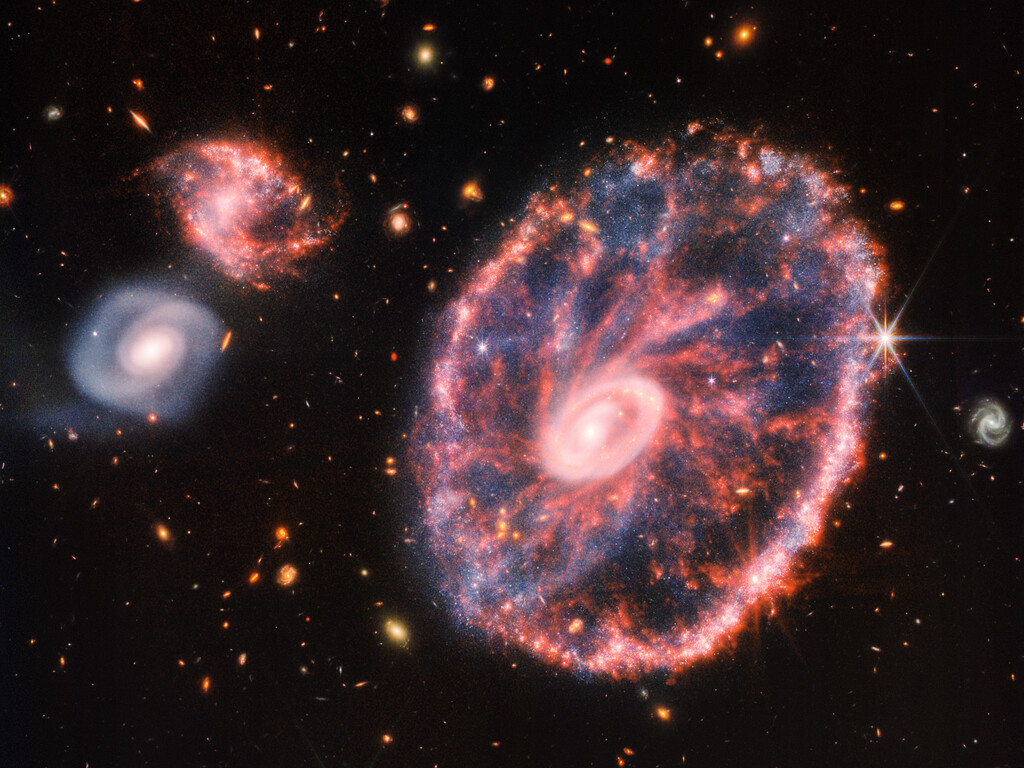7 Disturbing Discoveries That Shook Scientists and Changed the Way We View Our Universe


From the first moments of space exploration to the invention of quantum computing, the human race has come to an incredible distance in the past 200 years. Between all of these discoveries, there have been some truly disturbing moments that forced us to look at life and our place in the universe in a new light. These events have changed everything we know about science and shown us that we are still very much in the dark about many things. Fortunately for us, some brilliant minds have spent their lifetimes thinking about these questions and exploring strange new worlds. These are 7 scientific discoveries that shook scientists and changed how we view our universe as a result of them:
7. The First Stars and Galaxies
It was only 200 years ago that scientists first began to explore our universe, and what they found was incredible. In the late 1800s, telescopes that could see further than the naked eye were invented, and they revealed a universe filled with stars. Before then, the only thing that existed was the “void” of space, with no objects whatsoever. Now, with the ability to see to the edge of the universe, scientists found that the universe is filled with billions of galaxies, each with billions of stars. This gave rise to the Big Bang Theory, which suggests that the universe began with an explosion, billions of years ago.
This expansion of the universe resulted in scientists discovering that the earth is only one of many billions of planets in the universe. Astronomers discovered that the universe is expanding at an accelerating rate, which meant that the universe is getting older, not younger. This led to the conclusion that the universe began some billions of years ago, which is a long time for something that is supposed to only be a few thousand years old. At the same time, scientists began to understand that the universe is very finite, with billions of years at most. This understanding of the universe, combined with the exponential expansion, led to the Big Bang Theory.
6. Dark Matter and Energy
Dark matter is one of the most mysterious substances in the universe. It makes up around 27% of the total mass of the universe, but we can’t see it, touch it, or feel it. However, we know it exists because its gravitational effects are very similar to those of regular matter, but we can’t detect it. The only way scientists know about dark matter is by studying the effects it has on regular matter.
It is thought to be some sort of exotic subatomic particle, but no one knows what it is made of or what it is for. Scientists have also discovered that energy can take the form of other forces besides light. The electromagnetic force, the weak force, and the strong force are all forms of energy that are not visible light. This has led to a reexamination of the Big Bang Theory, in which scientists have concluded that the expansion of the universe is fueled by a force other than light.
5. Relativity
In 1905, Albert Einstein published his Theory of Relativity, which proposed that the speed of light is constant for all places in the universe, regardless of how fast an object is moving. This theory has had huge consequences for our understanding of the universe and how we live in it. It led to the conclusion that time and space are not absolute, but are relative to the observer.
The only constant is the speed of light, and everything else is relative to that. Einstein’s work has had a huge impact and continues to be applied to modern-day physics. For example, relativity can be used to explain how GPS works and how satellites are able to transmit signals at almost the speed of light. This is because GPS works on the assumption that if you know your exact position in space, time will tell you your exact location in the universe.
4. Quantum Theory
In the early 1900s, scientists began to explore the nature of matter. They discovered that matter has an invisible yet tangible “charge” that can be transferred between objects. This is where quantum physics was born, and it introduced a whole new understanding of the world. The 20th century saw some of the most important breakthroughs in human history, including the invention of the airplane, the radio, and television.
The invention of these technologies was the result of many years of experimentation and observation, but the scientists involved were not aware of what they were doing at the time. The inventions of quantum physics would have none of these limitations. They would allow for instantaneous communication between different objects, quantum computers that could perform calculations that would break today’s most advanced computers, and much more.
3. Space Colonization: The Final Frontier?
Near the end of the 20th century, scientists began to think about the possibility of space colonization. They realized that the only way to expand the human race beyond our planet was through space travel. This would allow us to find new homes in which to live, far away from pollution and Earth’s natural disasters. However, the idea that humans could leave Earth seemed impossible at the time.
After all, what could we do in space that we could not already do on the ground? In the past century, scientists have come up with some incredible ways that would allow us to not just explore space, but create artificial worlds in which to live. These include habitats that simulate Mars and the other planets in our solar system as well as underwater cities that would allow for easier colonization of new seas.
2. Comets: A Reminder of how fragile our lives are
Scientists have long known that comets are remnants from when the universe was young, but they did not know how long ago this was. However, recently, scientists have discovered that these icy bodies have been around for a mere 4.5 billion years, which is the absolute blink of an eye in the history of the universe.
This discovery has given scientists a completely new perspective on how long the universe has been around. It also brings up new questions, like how the solar system formed and what is currently happening to our planet that could cause a comet to become so active.
1. The Invention of Quantum Computing
Scientists have recently begun to explore quantum computers, which are computers that use quantum phenomena to process information. This new technology has the potential to revolutionize the way we process information.
Quantum computers could help solve the big problems that we face today, such as finding drugs for diseases that are too complex for traditional computers to solve. These computers would be able to do the work of millions of computers and would be able to process information much faster than our current system.
Conclusion

Scientists have discovered and developed many incredible ways to study our universe and better understand its place in the world over the last few decades. In the future, technology like quantum computers will help us understand our place in the universe even better, while also allowing us to live in space and on other planets.
